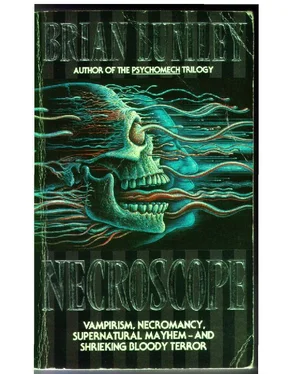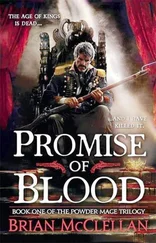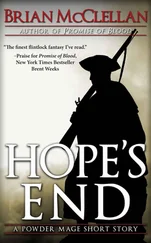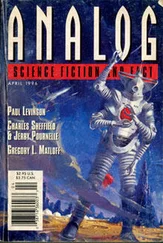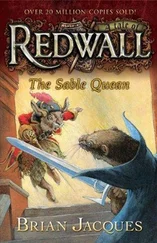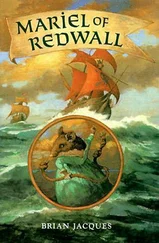Dragosani gave the weapon back. 'I say keep your crossbow, Ladislau Giresci. And I say look to its maintenance. Also, I say be careful who you invite into your house!'
He reached into his inside pocket for a packet of cigarettes, froze as Giresci aimed the crossbow directly at his heart across a distance of only six or seven feet and took off the safety catch. 'But I am careful,' said the other, still staring directly into his eyes. 'We apparently know so much, you and I. I know why I believe, but what of you?'
'Me?' inside his jacket, Dragosani slipped his issue pistol from its under-arm holster.
'A stranger in search of a legend, apparently. But such a knowing stranger!'
Dragosani shrugged, palmed the grip of his gun, began to turn its muzzle towards Giresci. At the same time he turned slightly to the right. Perhaps Giresci was insane. A pity. Also a pity that there would be a hole right through Dragosani's jacket and powder burns on the lining, but -
Giresci put on the crossbow's safety, set it down on a small table. Too cool by far,' he laughed, 'for a vampire faced with a wooden stake! And you know: the pressure on that wooden bolt is set to transfix a man but not pass right through him and out the back. That would be no good. Only when the stake is in place is the creature truly immobilised, and — ' His eyes went wide and his jaw dropped.
Grey as death, Dragosani had taken out his gun, applied the safety, placed it beside the crossbow on the table. 'The pressure on that,' he rasped, is sufficient to blow your heart right out through your backbone! I also saw the mirrors on the walls of the corridor — and the way you looked into them as I passed. Too many mirrors by far, I thought. And the crucifix on the door, and doubtless another around your neck — for all the good they'd be. Well, and am I a vampire then, old man?'
'I'm not sure what you are,' the other shook his head. 'But a vampire? No, not you. You came in out of the sun, after all. But think: a man, seeking me out, specifically desiring to know about the Wamphyri — even knowing that name: Wamphyri, which few if any others in the whole world know! Why, wouldn't you be cautious?'
Dragosani breathed deeply, relaxed a little. 'Well, your "caution" nearly cost you your life!' he said bluntly. 'So before we go any further, are there any more tricks up your sleeve?'
Giresci gave a shaky laugh. 'No, no,' he said. 'No, I think we understand each other now. Come, let's leave it at that for the moment. And here, let's see what else you have in that bag of yours.' He took the string bag from Dragosani and directed him to sit at a dining table close to an open window. 'It's shady there,' he explained. 'Cooler.'
The whisky's yours,' said Dragosani. 'The rest was for my lunch — except I'm not sure now that I feel like eating! That crossbow of yours is a bloody thing!'
'Of course you can eat, of course you can! What?
Cheese for lunch? No, I wouldn't hear of it. I've wood-cocks in the oven, done to a turn by now. A Greek recipe. Delicious. Whisky as an aperitif; bread to soak up the fat of the birds; cheese for afterwards. Good! An excellent lunch. And while we eat, I'll tell you my story, Dragosani.'
The younger man allowed himself to be placated, accepted a glass which the other produced from an old oak cabinet, allowed him to pour him a liberal whisky. Then Giresci hobbled off for a moment to the kitchen, and soon Dragosani began to sniff the air as the sweet odour of roasting meat slowly filled it. And Giresci had been right: it was delicious. Another moment and he was back with a smoking oven tray, directing Dragosani to get plates from a drawer. He tipped a brace of small birds on to his guest's plate, one on to his own. There were baked potatoes, too, and again Dragosani got the lion's share.
Impressed by Giresci's generosity, he said: 'That's hardly fair on you.'
Tm drinking your whisky,' the other replied, 'so you can eat my birds. Anyway, I can shoot more any time I want them — right out of that window there. They're easy to get, but whisky's harder to come by! Believe me, I'm getting the best of the bargain.'
They began to eat, and between mouthfuls Giresci started to tell his tale:
'It was during the war,' he said. 'When I was a boy, I hurt my back and shoulder very badly, which did away with any question of my being a soldier. But I wanted to do my bit anyway and so joined the Civil Defence. "Civil Defence" — Hah! Go to Ploiesti, even today, all these years later, and mention Civil Defence. Ploiesti burned, night after night. It just burned, Dragosani! How does one "defend" when the sky rains bombs?
'So I simply ran around with hundreds of others, dragging bodies out of burning or blasted buildings. Some of them were alive but most were not, and others would have been better off dead anyway. But it's amazing how quickly you get used to it. And I was very young and so got used to it all the more quickly. You're resilient when you're young. You know, in the end all the blood and the pain and the death didn't even seem to matter very much. Not to me, nor to the others who were doing the same job. You do it because it's there — like climbing a mountain. Except this was one where we could never get to the top. So we just kept on running around. Me, running! Can you picture that? But in those days I had both my legs, you see?
'And then… then there was this night when it was very bad. I mean, it was bad almost every night, but this one was — ' He shook his head, lost for words.
'Outside Ploiesti, towards Bucharest, there were a good many old houses. They were the homes of the aristocracy, from the old days when there really was an aristocracy. Most of them were run down because people hadn't had the money to keep them going. Oh, the people who lived in them still had some money, land, but not that much. They were just hanging on, gradually decaying, falling apart along with their old houses. And that night, that's where a stick of bombs fell.
'I was driving an ambulance — a converted three-tonner, actually — between the city and the outskirts where they'd rigged up hospitals in a couple of the larger houses. Up to then, you see, most of the bombing had been in the middle of town. Anyway, when that stick fell I was blown right off the road. And I thought I was a goner… done for. This is how it happened:
'One minute I was driving along — with the old rich houses on my right behind high walls, and the sky to the east and the south ruddy where the fire was reflected from the underside of the clouds — and the next all hell erupting from the very earth, it seemed! My ambulance was empty, thank God, for we'd just completed one trip and unloaded a half-dozen badly injured people at one of the makeshift hospitals. There was just me and my co-driver, on our way back into Ploiesti, the truck bumping over old cobbled roads where debris was piled at every corner. And then the bombs came.
'They came marching across the rich old estates, thundering like berserker demons, blowing everything up into the air in great sheets of blinding light and sprays of brilliant red and yellow fire! They would have been awesomely beautiful, if they weren't so hellishly ugly! And they marched, yes, with the precise paces of soldiers, but gigantic. Three hundreds yards away, the first one, behind the private estates: a dull boom and a sudden glare, a volcanic spout of fire and mud, and the earth shuddering under my speeding truck. Two hundred and fifty yards, the second, flinging blazing trees and earth up to the sky high over the rooftops. Two hundred, and the fireball rising higher than the old stone walls, higher than the houses themselves. And each time the earth shuddering that much stronger, that much closer. Then the house on my immediate right, set back from the road at the head of a cobbled drive, seeming almost to jump on its foundations. And I knew where the next one would land. It would hit the house! And what about the one after that?
Читать дальше
